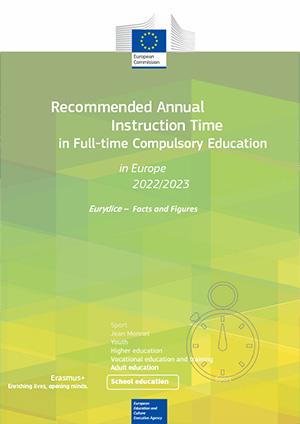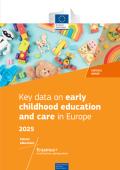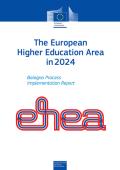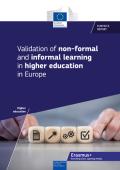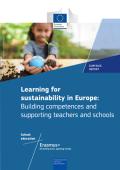Recommended Annual Instruction Time in Full-time Compulsory Education in Europe – 2022/2023
Effective learning depends on many factors, but undoubtedly, the instruction time available to students plays a key role in their learning process. Along with the quality of instruction and the time available for learning after school, the increase in the amount of instruction time allocated to a discipline can help to raise students’ interest in that subject and can have positive effect on students’ performance, even more when the increase is accompanied by other support measures and directed at disadvantaged students.
This report analyses the recommended minimum instruction time in full-time compulsory general education in 39 education systems. The data refer to the minimum requirements set for the compulsory curriculum by the competent authorities for the year 2022/2023.
The analysis shows that reading, writing and literature is the subject area that generally accounts for the largest proportion of instruction time at all education levels, being especially dominant in primary education. At primary level, the focus for most countries is on reading, writing and literature (about 25% of total instruction time), while mathematics represents the second largest proportion of instruction time. At secondary level, the proportion of reading, writing and literature decreases in favour of other subjects, such as natural sciences and foreign languages. These data have been jointly collected by the Eurydice and the OECD NESLI networks.


